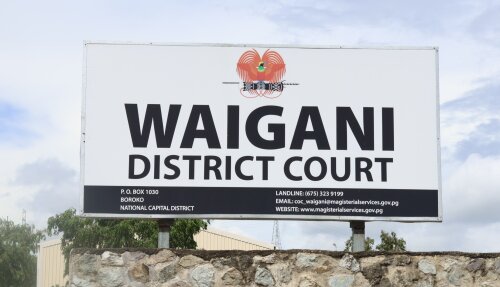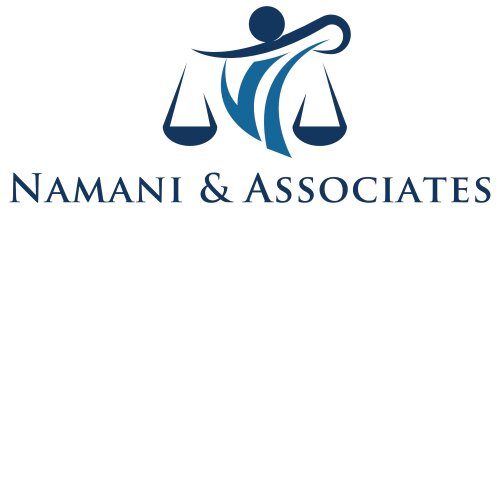Best Appeal Lawyers in Port Moresby
Share your needs with us, get contacted by law firms.
Free. Takes 2 min.
List of the best lawyers in Port Moresby, Papua New Guinea
About Appeal Law in Port Moresby, Papua New Guinea
The appeal process in Port Moresby, Papua New Guinea allows individuals to challenge decisions made by lower courts. Appeals provide parties with an opportunity to present their case to a higher court for review in order to seek a different outcome. This legal mechanism promotes fairness and justice by allowing errors or unfair decisions to be rectified.
Why You May Need a Lawyer
Here are some common situations where seeking legal help in the field of appeal in Port Moresby, Papua New Guinea may be necessary:
1. You have received an unfavorable verdict in a lower court and wish to challenge the decision.
2. You believe that legal errors or procedural irregularities negatively impacted your case.
3. You need assistance in navigating the complex legal system and understanding the requirements for filing an appeal.
4. You want to present a strong legal argument and gather evidence to support your case during the appeal process.
5. You need guidance on the timeframe and procedures involved in filing an appeal.
Local Laws Overview
The appeal process in Port Moresby, Papua New Guinea is governed by the Country's Constitution, statutes, and case laws. Some key aspects that are particularly relevant to appeals include:
1. The Supreme Court of Papua New Guinea is the highest appellate court in the country.
2. The appeal process is governed by the Supreme Court Rules, which outline the procedural requirements for filing an appeal.
3. Appeals can be made on both points of law and matters of fact.
4. The Supreme Court has discretionary power to grant or deny appeals based on the merits of the case.
Frequently Asked Questions
1. Can I appeal any court decision in Papua New Guinea?
No, you can only appeal decisions made by lower courts if they fall within the scope of the Supreme Court's jurisdiction.
2. What is the deadline for filing an appeal?
An appeal must generally be filed within 14 days of the date of the decision you wish to challenge.
3. Do I need a lawyer to file an appeal?
No, you can file an appeal yourself. However, seeking legal representation is highly recommended to ensure a strong case.
4. How long does the appeal process usually take?
The duration of the appeal process can vary depending on the complexity of the case. It may take several months to a year or more to receive a decision.
5. Can new evidence be presented during the appeal?
In general, new evidence cannot be presented during the appeal. However, certain exceptional circumstances may allow for the inclusion of new evidence.
Additional Resources
If you require further information or legal assistance in the field of appeal in Port Moresby, Papua New Guinea, consider reaching out to:
- The Papua New Guinea Law Society
- The Legal Aid Commission
- The Office of the Public Solicitor
Next Steps
If you find yourself in need of legal assistance in appeal matters, you should take the following steps:
1. Consult with a qualified lawyer experienced in appeals.
2. Discuss the details of your case and any concerns you may have.
3. Gather all relevant documents and evidence to support your appeal.
4. Follow the necessary procedures outlined by the Supreme Court Rules for filing an appeal.
5. Work closely with your lawyer to build a strong case and present it effectively during the appeal process.
Lawzana helps you find the best lawyers and law firms in Port Moresby through a curated and pre-screened list of qualified legal professionals. Our platform offers rankings and detailed profiles of attorneys and law firms, allowing you to compare based on practice areas, including Appeal, experience, and client feedback.
Each profile includes a description of the firm's areas of practice, client reviews, team members and partners, year of establishment, spoken languages, office locations, contact information, social media presence, and any published articles or resources. Most firms on our platform speak English and are experienced in both local and international legal matters.
Get a quote from top-rated law firms in Port Moresby, Papua New Guinea — quickly, securely, and without unnecessary hassle.
Disclaimer:
The information provided on this page is for general informational purposes only and does not constitute legal advice. While we strive to ensure the accuracy and relevance of the content, legal information may change over time, and interpretations of the law can vary. You should always consult with a qualified legal professional for advice specific to your situation.
We disclaim all liability for actions taken or not taken based on the content of this page. If you believe any information is incorrect or outdated, please contact us, and we will review and update it where appropriate.















